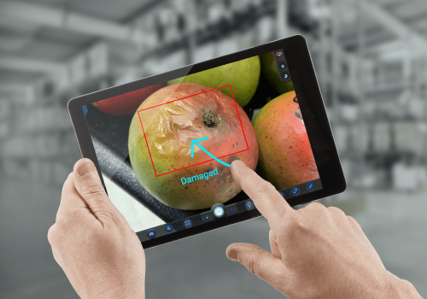
How Generative AI and RAG Unlock Decades of Business Knowledge

In 2020, The FDA released their blueprint for The New Era of Food Safety, outlining its approach over the next decade for food safety and technology. Simultaneously, reports of over 145 USDA food safety and inspection service employees missing work due to COVID-19 helped the U.S. food industry recognize the importance of incorporating augmented reality (AR) solutions in their supply chain process. Despite several digital technology advancements in the food industry, safety processes like auditing and inspections were still being conducted in-person when the pandemic started.
The food and agriculture industry has traditionally been the slowest to digitize its processes. With COVID-19 limiting face-to-face interactions, it became evident that the only course forward was to integrate solutions that helped maintain quality without compromising consumer and worker safety. AR has emerged as a valuable ally helping organizations take their food safety to the next level.
In the current climate, travel restrictions and social distancing protocols set by governing bodies pose a severe challenge to the global food industry. Before the pandemic hit, many organizations were already exploring remote auditing capabilities; COVID-19 accelerated these solutions’ implementation to maintain business continuity. Enterprise AR solutions provide a safe, reliable alternative to in-person inspections while also helping organizations remain compliant with regulators.
Using AR platforms, an auditor in America, for example, can inspect a facility in Thailand from the comfort of their own home using remote auditing capabilities. All that is required to complete this audit is an internet connection, a smartphone or tablet and a plant worker to walk through the facility with the remote auditor. The result is significant costs and time savings. Audits that would have cost thousands of dollars and required weeks to complete instead take only 30-60 minutes.
The need for food traceability accelerated during the pandemic as consumers sought reassurance that their food was safe and consisted of traceable ingredients. While there is no known link between the spread of coronavirus and food products, the food industry was challenged to reinforce its commitment to quality and build consumer trust in challenging times.
Organizations can gain customer loyalty by predicting and avoiding critical missteps during production and inspection. As opposed to paper-based instruction guides, AR solutions that offer digital work instruction capabilities can walk workers through step-by-step instructions on performing a task or inspection, thereby saving time and reducing errors. Additional features like computerized AI vision and IoT data at the point of service can help detect and solve problems with remote experts’ help at the touch of a button.
A 2017 Harvard Business Review article reported that AR solutions helped Boeing increase their assembly process productivity by 25%. At Librestream, our Onsight clients report a 70% increase in total productivity hours and a 20% accelerated time to issue resolution. With such dramatic increases, it is no surprise that leading food retailers and manufacturers are looking for solutions that offer digitization at scale and enable workers to remain connected and maintain productivity in isolated settings.
For the food industry, innovation will be vital to remaining competitive and profitable in the face of challenging times and beyond. Many organizations are deploying new approaches to food safety and verification. Reach out to our team to get more information on our secure remote auditing solution by contacting us at info@librestream.com.